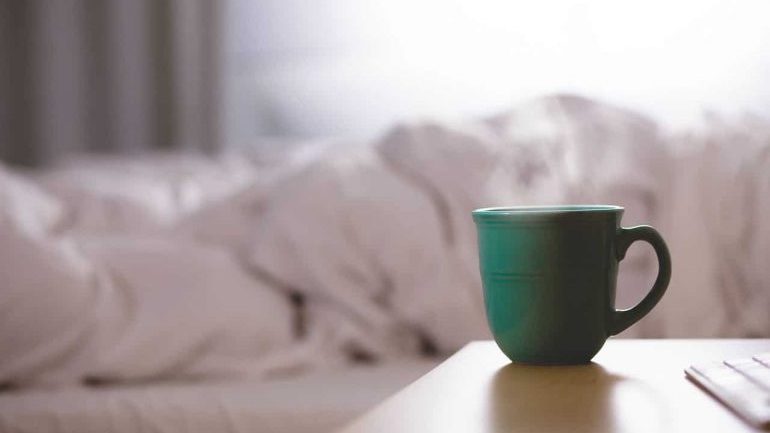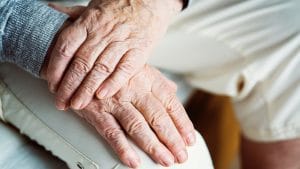15 Benefits of Napping That You Shouldn’t Miss
written by / July 27, 2019

Do you sleep in the afternoon? According to research, we should sleep every time we have the urge. Sleeping for just 10–15 minutes during the day can have a tremendously positive impact on our health.
The benefits of napping are greater than you can imagine. As time goes by, our lives become more and more stressful. And sleep disturbances are a natural consequence of our busy schedules. We try to balance thousands of things at once—work, family, children, friends, homework, and so on.
When the fatigue becomes too much, it’s hard to resist sleeping during the day. But what are the positives and negatives of doing so?
Why Do I Need a Nap Everyday?
Every moment we can steal a little leisure time is good for catching up on sleep and restoring some of our energy. But even though sleep usually helps us, it can hurt us as well.
The reason for this relates to the nature of the sleep. The sleep cycle consists of several stages, which are repeated several times a night. Whether we wake up rested or not depends precisely on which stage of sleep we wake up in.
There are even several napping benefits for people who have no sleep problems at all. A quick rest of about 20 minutes is a great way to recover energy. Within this short time, our body manages to enter only the lightest phase of sleep, from which we have no problem waking up. What’s more, we won’t encounter the usual sense of fatigue that follows a long afternoon nap.
Another option is a midday nap that lasts for around 90 minutes. It restores a good deal of our strength because this is about how long it takes to go through a full cycle of sleep. In particular, this could be beneficial both for children and pregnant women.
Even if you don’t have trouble sleeping at night, naps that last longer than 20 minutes will make you feel tired. You should, however, avoid taking afternoon naps if you suffer from insomnia, or are often woken up at night because of sleep apnea or another sleep problem. Essentially, you won’t see any nap benefits if you suffer from another sleep disturbance. Basically, when you don’t rest at all or don’t get the hours you need, then sleeping during the day will only lead to another night of partial sleep.
There are other reasons to worry about sleeping during the day. For example, constant fatigue can be a sign of illness: depression, diabetes, thyroid problems, other hormonal disorders, or a disrupted metabolism. The connection between napping and depression was proven long ago. Whether you’re under stress or not, if you have sleep problems that last longer than a week, contact a doctor. When your body functions correctly, it’s like a machine, and sleep is the key to proper maintenance.
Exhaustion from a tense daily routine and other necessary engagements can hit us at any moment. When the afternoon arrives, many people feel an overwhelming desire to lie down, close their eyes, and let their thoughts shut down for a while. This is the best time to nap.
An afternoon nap is usually beneficial for your health. To highlight this, we’ve compiled 15 convincing reasons to support why napping is a good habit, so you should sleep during the day when you have the time. As for your little ones, it’s a must. Even kids aged 5–6 years old who don’t want to sleep like “babies” shouldn’t miss their daily nap if you want them to get all the best health benefits of napping.
The Biggest Benefits of Napping
We should always listen to our body’s signals, and if it needs sleep, it’s okay to take a quick “siesta.” Here are the reasons napping can be good for you:
1. Napping improves cognitive functions.
Sleep impacts how effectively we learn and our ability to retain information, so it’s no wonder that an afternoon nap helps with the same. It’s proven that sleeping for between 60 and 90 minutes stimulates mental activity for the next 24 hours.
During sleep, what you’ve learned in the day repeats several times until it’s built up in your memory, and some neural connections are strengthened. The benefits of napping for college students also include better learning capabilities, improved mental activity, and greater creativity. The mind loves sleeping.
2. Naps enhance your work capacity.
A NASA study has shown that a short nap increases a person’s work capacity by 100%. Other studies have found that an afternoon nap is more effective than 200 mg of caffeine or a quick workout.
3. Napping helps maintain heart health.
People who regularly take brief naps—three times a week for 30 minutes—significantly reduce their risk of a future heart problem. The scientific benefits of napping show a significant decline in the risk of developing ischemic (coronary) heart disease among the countries that have a regular “siesta” as part of the culture.
Studies at Harvard University explain why people who regularly sleep in the afternoon are more protected from cardiovascular disease. This pleasant habit compensates for daily fatigue and the load it places on the heart and vessels. If you’re looking for this kind of preventative effect, you won’t need to ask, Are naps good for you? They definitely are. However, try to have a nap at least three times a week for 30 minutes each to achieve the full health benefits.
4. Napping improves memory.
Scientists say a brief snooze that lasts between 20 and 30 minutes can greatly increase the brain’s capacity to remember and store information. Enhancing memory is one of the best benefits of naps for college students.
5. A short nap can improve your creativity.
Sleeping in the afternoon can help you cope with a creative crisis. Being hampered by the sense of a creative block is stressful. Luckily, the brain likes to sleep, which is how it restores itself. So if you need a creative push, just nap for half an hour! It’s more effective than a cup of coffee, not to mention the other health benefits of a siesta.
6. Napping reduces stress and anxiety.
Fatigue and mentally overloading cause stress that makes us even more tired. A greater quantity of quality sleep relieves stress and reduces anxiety, and it helps us recharge. It can help you calm down and eliminate the sense of irritation and pressure.
In fact, scientists have found that a short snooze for 30–45 minutes during the day can reduce the stress hormones in our body and calm us, especially after a stressful event. Reducing stress is one of the essential benefits of napping at work.
7. Regular naps score a victory over a big appetite.
Sweet snacks and energy drinks seem like a quick way to refuel when we feel exhausted. Unfortunately, the benefits are actually uncertain, and there are also notable negatives behind this habit. Conversely, while napping, your energy is restored, and you don’t think of food while you sleep. Even 10–15 minutes of relaxation with your eyes closed can free you from the desire to snack. According to science, this is one of the most critical power nap benefits.
8. Sleeping during the day improves physical performance.
Studies have shown that athletes who sleep for a short time during the day perform better, improving their motor skills, speed, reaction time, and strength. Whether you’re a professional athlete or not, a 10-minute nap during the day will undoubtedly improve your performance in whatever physical activity you engage in, improve your reactions, and make you more alert. The only thing you have to keep in mind is that you’ll have to overcome the initial sleep inertia after you wake up.
9. Napping can improve your resolve and will.
When you’re tired, your resolve declines sharply to the point where it’s sometimes impossible to finish your daily tasks. For this reason, a short afternoon nap improves mood, reduces stress, and restores focus.
10. Naps can help you look better.
Sleeping during the day is associated with the regeneration of skin cells, making you person look younger, healthier, and more beautiful. So don’t skip your nap today!
11. Napping increases sexual desire.
The benefits of an afternoon nap include enhanced sexual desire, especially for women. The mutual relationship between sleep, sexual desire, and arousal has been known for decades. Scientific findings indicate that insufficient sleep decreases sexual arousal and desire in women.
12. A short afternoon nap can improve your mood.
Serotonin, a neurotransmitter, regulates sleep, appetite, and mood and creates a sense of satisfaction. Under stressful conditions, however, more serotonin is used while less is synthesized. As a result, people become irritable, depressed, worried, and disconcerted. Even if you can’t afford taking 2-hour naps everyday, whenever you do take a nap, more serotonin is released, and all these processes could be avoided.
13. Regular napping generally improves health.
Lack of sleep leads to increased levels of the hormone cortisol in the body. This is the stress hormone that increases glucose intolerance and fat accumulation around the abdomen, weakens the muscular and immune systems, worsens the learning and memory processes, and reduces levels of the growth hormone and testosterone.
Nap facts show that during sleep, the growth hormone is released, which prevents these effects. As a result, napping improves the immune system and sexual function, reduces stress and anxiety, and helps you restore muscle mass and lose weight.
Nevertheless, a quick nap during the day helps people with obesity lose weight by stimulating the metabolism and speeding up the secretion of biochemical substances that help break down fat.
14. Napping will reduce your need for caffeinated products.
It’s been shown that an afternoon nap can reduce the desire for harmful substances such as caffeine and nicotine. Many people complain that they don’t sleep deeply or for enough time at night, but they choose to replace an afternoon nap with caffeine. This could be one of the most positive benefits of napping for students, especially since they often overuse caffeine-rich drinks.
15. Napping could help soothe a migraine.
Interestingly, a short rest during a migraine attack can alleviate its symptoms. Since the symptoms can vary from mild to severe, a simple approach is best for helping patients survive an episode.
Tips for a Better Quality Nap
Scientists say that regularly sleeping in the early afternoon may significantly contribute to both physical health, refresh the mind, and improve concentration. Therefore, to harness all the known napping benefits, here are some suggestions:
- Use an alarm to make sure you wake up. Experiment with different durations of sleep (5–45 minutes) and decide which sleep period works best for you.
- Use a blanket because the body loses some of its heat when it’s at rest.
- Keep your head raised, preferably on a sofa cushion or on several pillows if you want to increase the psychological benefits of napping.
- Try to sleep in a cool and somewhat dim space. Full darkness and warmth in the room will help you fall asleep deeply, so it actually isn’t best for an afternoon nap. It’s important for the body to distinguish between day and night sleep. The rest you get during the day shouldn’t be as deep as it is at night.
- It’s best to take your nap in the afternoon, preferably after a meal. If you fall asleep before noon, you may have difficulty falling asleep, and if you nap too late, you’re likely to wake up after you go to bed for the night. If you’re asking yourself, How long should I nap? remember, the shorter, the better.
- An interesting suggestion: Place a pencil between your fingers. When you fall asleep, your fingers will relax, and the pencil will fall to the floor, which will wake you up. This could be a good alternative if you don’t have an alarm.
The next time you feel sleepy or tired, don’t think of napping as a bad thing. There are no real negative effects of napping. Moreover, there are plenty of benefits of sleep, overall. Many famous and successful people have taken advantage of an afternoon nap to increase their productivity during the day, including Napoleon, Thomas Edison, Leonardo da Vinci, Eleanor Roosevelt, John F. Kennedy, and Winston Churchill. So don’t forget to listen to what your body has to say. If you feel tired, take a nap.
FAQs
What’s the perfect nap time?
Do you often feel exhausted in the middle of the afternoon? You aren’t alone. Many people experience a sense of drowsiness and have significantly less energy starting around 3:00 p.m. A short daytime nap before 4:00 p.m. that lasts between 20 and 90 minutes improves your cognitive functions, helps with weight loss, and even improves sexual function and mood.
Why are naps healthy?
Naps reduce the risk of heart attack, stroke, arrhythmia, high blood pressure, and other dangerous cardiovascular diseases while improving your mood by stimulating serotonin secretion. Additionally, they improve your fine motor skills and balance, which is important if you work with machines or work in a field that requires physical accuracy.
Napping helps with your thought processes, improving your judgment so you can make the right decisions. It increases productivity and creative thinking. What’s more, better vigilance and brain productivity can practically double your workplace productivity.
Is it normal to need a nap every day?
Napping makes you feel good. The overall benefits of taking a nap are similar to those that come after drinking caffeine—but it doesn’t come with any of caffeine’s side effects.
The best thing you can do is sleep when you have the opportunity. A short rest will improve your awareness for the rest of the day. In addition, a nap has many other health benefits.
Is napping good for weight loss?
Napping improves the absorption of carbohydrates, reduces the risk of diabetes, and thereby facilitates weight loss. Additionally, napping triggers the natural hormones that block stress-causing substances. All of these together help your metabolism perform at its peak.
Conclusion
Just remember, sleep isn’t a waste of time—it’s a vital necessity, like water and food. Back when we were kids, we always slept in the afternoon. And now our bodies miss it, since the benefits of napping have always been powerful. A short nap to break up our busy day could be a precious recreational experience that has scientifically proven therapeutic and healthful effects.











Warning: Undefined array key "format" in /home/602518.cloudwaysapps.com/cspedpjass/public_html/wp-content/themes/disturbmenot/template-parts/post-item/post-comment.php on line 23
Warning: Undefined variable $commenter in /home/602518.cloudwaysapps.com/cspedpjass/public_html/wp-content/themes/disturbmenot/template-parts/post-item/post-comment.php on line 27
Warning: Trying to access array offset on value of type null in /home/602518.cloudwaysapps.com/cspedpjass/public_html/wp-content/themes/disturbmenot/template-parts/post-item/post-comment.php on line 27
Warning: Undefined variable $commenter in /home/602518.cloudwaysapps.com/cspedpjass/public_html/wp-content/themes/disturbmenot/template-parts/post-item/post-comment.php on line 29
Warning: Trying to access array offset on value of type null in /home/602518.cloudwaysapps.com/cspedpjass/public_html/wp-content/themes/disturbmenot/template-parts/post-item/post-comment.php on line 29